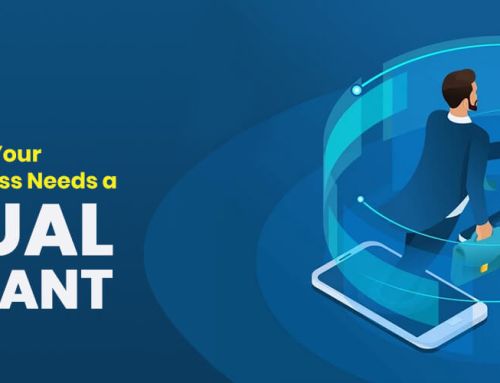The contact center is a special department where support representatives interact with customers on multiple different platforms. The communications can be in multiple different channels, like emails, live chats, and social media interactions, not just phone calls. If you’ve ever messaged the helpdesk on the Amazon site/app, a support desk for laptop repairs, etc., you most likely got in touch with their respective contact centers.
They combine resources like people and technology with support processes so effectively that customer support is very efficient.
How are contact centers different from call centers?
Contact centers are very similar to call centers and they serve pretty much the same functions. But there are some differences among them. Call centers only handle incoming and outgoing phone calls. Whereas contact centers do things beyond handling phone calls, like live chats, emails, social media interactions, etc.
The use of contact centers feels much more personalized since customers can get in touch with the support team through whichever means is comfortable for them. Since they use a multitude of mediums and platforms for engagement, their approach to customer service is more comprehensive. Also, unlike call centers, where the focus is on call efficiency, contact centers focus their attention on customer experience.
Types of contact centers
Contact centers can be classified based on numerous factors- call/contact flow direction, channel coverage, customer location, etc.
On the basis of call/contact flow direction
Inbound contact centers
The agents here handle queries that come in from customers for a business. Customers can contact these agents by means of phone calls, live web chats, emails, and messages with queries, complaints, feedback, etc.
Outbound contact centers
An outbound call center is where agents contact customers on behalf of a company. They’re usually used in two cases. The first is that you need to initiate customer service communications (appointment reminders, insurance renewal reminders, car service reminders, and customer surveys). The second is when you need to send promotional communications for your products/services (lead generation, upselling, appointment setting).
Blended contact centers
Blended contact centers are where the agents do both inbound and outbound tasks.
On the basis of channel coverage
Multichannel contact centers
A multichannel contact center is one where the agents handle customer queries that come through multiple different channels. Some channels that they use include phone calls, emails, direct messages/comments on social media (Facebook, Instagram, WhatsApp), live chat, SMS (text messages), and so on.
Multichannel agents are very beneficial when used in the right way. They provide extensive coverage of your support channels, but they may not be covering every single channel you are using.
Omnichannel contact centers
An omnichannel contact center is one that handles every single one of your active support channels. The coverage they provide is much more extensive than that of multichannel centers. Omnichannel centers are currently the most popular kind of contact center, as they can give you a unified overall idea of your customer satisfaction.
On the basis of customer location
Domestic contact centers
Domestic contact centers reside within your own country. You’d use them to cater to customers that reside within the same region, or, in other words, localities.
International contact centers
Companies that want to serve their customers in various locations around the world use international contact centers. They may or may not be located in a foreign country.
Others
Industry-specific contact centers
An industry-specific contact center is one that provides customer support for companies in one particular industry. Such agents can be useful, especially for more technical products/services.
Virtual contact centers
Virtual contact centers are simply a term for contact operations were the agents work from home. There is no centralized office where the agents have to gather and work. They can be located in any part of the world.
Offshore contact centers
An offshore contact center is one that is located outside the country in which you are located. Usually, offshore companies are in regions of the world where labor costs are low. Outsourcing customer support activities to these regions helps reduce overhead in the long run.
What are the benefits of using contact centers?
Improvement in customer satisfaction
The main point of having a contact center is so your customers can connect with someone using any medium and get a response within a reasonable timeframe. They don’t have to wait for long call queues or wait for when the call center is running to get in touch with someone. You can, in fact, use these centers to reduce the burden on your call agents.
Better customer support experience
Customers, nowadays, want consistency whenever they interact with your business representatives. That means, if you already have their information, they don’t want to keep repeating themselves when they contact you through different mediums. The agents use special contact center software that centralizes all your customer data and conversations, so they can pull up relevant information from any platform, no matter how the customer is connecting with you.
Deeper customer insights
Contact centers keep a track of your different support and communication channels in real time. So, not only do you get a more holistic view of customer sentiment, customer satisfaction, and brand perception, but you also get current information on the same. With such insights, it’s easier to improve customer support, sales and promotion campaigns, products and services, etc.
Improved sales and increase in revenue
Customers, nowadays, take to social media to complain, criticize, or praise a product or service. Unfortunately, it’s more common for them to complain. You even see them complaining about the customer service when they are very frustrated. Fortunately, contact center agents have AI-powered software that screens customer conversations across various platforms. Incorporate the criticisms and suggestions and improve your product, service, and customer support for increased sales revenue.
Decrease in overall costs
Having all the information in one centralized software brings down the average handle time (AHT) and first contact resolution (FCR). Agents become more productive as they don’t need to waste time gathering information. When conflicts get resolved soon, there is a reduction in the churn rate, so you don’t lose customers.
Increasing the number of alternative ways (email, WhatsApp, live chat) for your customers to contact you that are cost-effective helps reduce costly voice call bills. Moreover, when you use a combination of outsourced and offshore contact centers, you further reduce customer support and sales overheads.
Uses of contact centers in different business industries
Contact centers may not be necessary in every single industry, but there are some businesses that cannot do without their services. Let’s see some industries that benefit a lot from these customer support agents.
Healthcare
Contact center agents support the front desk, and other teams provide patient and customer service. Since you are dealing with people who need a lot of care and sensitivity, the agents can give you support services with more of a human touch than would be possible from burnt-out staff. The contact agents can schedule appointments, send reminders, send prescription notifications, and make follow-up calls on your behalf.
Banking and Finance
Banking and financial institutions (like insurance, hedge funds, etc.) are also industries where it’s extremely crucial for good customer support. Through contact centers, you can make the banking experience quick and effortless for customers. Automation in these centers can also free up the agents so they can be more focused on clients. Things like account balance updates and credit/debit updates can be automated for smooth support. Thus, agents can more easily focus on 24-hour support services, personalizing financial advice, and compliance assurance.
Restaurants and delivery
These centers are like heaven-sent for restaurants and delivery services. They heavily rely on constant contact with customers for updates, order tracking, reservations, placing orders, feedback, conflict resolution, and so on. Having these agents on top of all these communications really makes the dining and takeout experience much smoother and more efficient.
Travel and transport
Travel and transport companies also depend heavily on contact centers, just like any company in service industries. With these agents at your service, it’s easier to handle booking queries, manage reservations, make follow-up calls, make supporting arrangements, etc.
If you’ve ever gone on a packaged tour or booked an Uber, you’ll know exactly how important it is to have customer support agents available on many different mediums.
e-Commerce
e-Commerce companies, especially those that cater to customers from all over the world (like Amazon or Ikea) or have millions upon millions of customers, can’t possibly tend to all of them over calls. They’d have to hire tens of thousands of call staff just to keep up. Contact centers make much more sense, as customers with smaller issues can get them resolved over chat. Meanwhile, customers with much more pressing issues can seek resolutions over the phone.
In closing
Contact centers are an extraordinarily important business resource, specifically when you must provide support to a very large number of customers. Here, support representatives interact and handle communications with customers on your behalf. In more ways than one, they have a wider reach than regular call centers, as they do more than just answer/make calls.
However, whether or not you need their services completely depends on your scale of business and industry.


